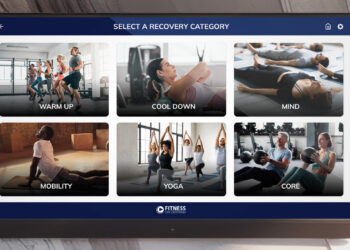
Personal trainers that can sell themselves as well as the benefits of personal training, can improve your bottom line and increase client loyalty. Mark Miller, the vice president of Merritt Athletic Clubs in Baltimore, Maryland, explained how to develop personal trainers so they become successful salespeople.
CS: How do you instruct your trainers on how to sell?
MM: We do a number of things. Most trainers have a fear of selling, so we teach them how it’s all about service. When we launch new trainers, they spend time learning how to sell, how to prospect and how to build relationships. It’s all standardization and every new trainer must go through this training. In addition, we use online coaching tools, readings and role-plays on various aspects of sales for trainers.
CS: Say a trainer is struggling to sell packages. What steps should you take to help them?
MM: Well the first step is to assess their skill set with sales and find out which aspect of the sales process may not be maximized. Once identified, then some re-training and role-playing can help. In addition, sometimes you have to simply find the package they can sell or get them to sell just one session and coach how to turn that into an additional session. I have found once trainers have a session, they can easily get clients to do more. It’s that initial sale they fear and struggle with.
CS: Is it a trainer’s job to sell? Or is it partly the club’s responsibility?
MM: I think it’s a little of both. We are really all-in when it comes to sales. So when both work together, the net results are more sales and ultimately, better results for our members.
CS: What are the main qualities of some of your trainers that are great salesmen? What can other trainers learn from them?
MM: There are a number of qualities, and it varies by clientele or demographic. In the end it’s attitude, belief, living our purpose and core values and overcoming the mindset of fear in asking and realizing you are helping. At the end of the day, one’s attitude determines their altitude. Our best sellers believe in themselves and the product they deliver. They are not afraid to guarantee it.
I think other trainers can learn from their example and how they say things, how they build respect and rapport and how they navigate and overcome objections. Mentoring can be very powerful. Also, new trainers can see that everyone gets rejected. The difference in our best sellers is they don’t take ‘no’ as the final answer.
CS: In addition to selling new packages, is renewing existing clients just as important?
MM: This may be even more important. Client retention is like membership retention — it’s critical. It’s easier to keep current clients then go find new ones. Also, they refer and promote more, so those intangibles are critical to a trainer’s success. The power of testimonials is key. Trainers need to see themselves as always building their clients and servicing them. Even if a client stops because they don’t have the budget anymore, they can still be treated as a client and checked in on, for example. Remember, we all have this magic circle of influence around us, and that’s where referrals come into play.
CS: Is there anything else on personal training sales you’d like to share?
MM: I think sales and marketing are critical components to success in personal training. Most clubs or trainers lack in this particular area, and it shows in their success. If everyone just reached out and said, “Hey, help me learn this,” and their managers did, we could make a great impact — more so than the under 10 percent penetration rate we have today. Tons of resources exist, and I am more than happy to help people myself.
By Rachel Zabonick
Stay ahead in the fitness industry with exclusive updates!
Rachel Zabonick-Chonko is the editor-in-chief of Club Solutions Magazine. She can be reached at rachel@peakemedia.com.











